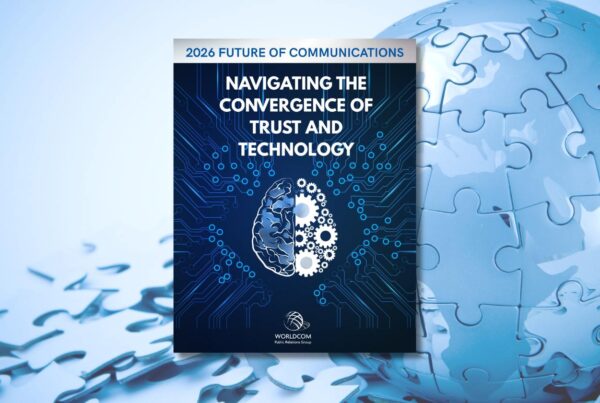By Stefan Pollack
This article was originally posted on Forbes. Agency president Stefan Pollack is a member of the Forbes Agency Council – an invitation-only organization for owners and executives of public relations, media strategy, creative, and advertising agencies – that shares thought leadership about a wide range of relevant, important industry topics.
For more than a decade, restaurants and small businesses have tailored their marketing to focus on millennials. Now, with the oldest members of that generation about to hit 40, it’s time to wise up to the fact that your go-to marketing tools may not work with the next (and biggest) generation that is currently flooding into your restaurants en masse.
In 2018, Gen Z placed 552 million food service delivery orders. They are here in the marketplace, going to restaurants and ordering takeout, with the ability to spend up to $143 billion in the U.S. alone. In late 2019, we conducted a survey of nearly 500 Gen Zers and found that restaurants may need to rethink their approach to customer engagement because their tried-and-true millennial marketing tactics won’t work on Gen Z—and may even deter them.
According to our survey, three-quarters of those in the 15-24 age group have never written a review on Yelp. That doesn’t mean the platform is irrelevant; 67% said that, upon visiting a restaurant for the first time, they check its Yelp reviews. It’s part of their own research online and helps to inform them, but certainly is not their only source. But these numbers do indicate that Gen Z may be significantly less influenced by Yelp and online reviews than their predecessors.
When asked about how they search for full-service or fast-casual restaurants (which our study revealed to be the types of restaurants they prefer), nearly 40% of respondents said they are either “not at all likely” or “slightly likely” to use Yelp as a resource. For restaurants and small business owners whose livelihoods depend on online reviews, this may be a game-changer.
The biggest takeaway is that Gen Z doesn’t trust anything that smells even faintly inauthentic, which could account for why a staggering 64% of them say they would not post a Yelp review if offered a free item. At best, they’re deeply skeptical of corporate influence; at worst, they consider that form of marketing manipulative. They don’t want to be cajoled or bribed into putting up an inauthentic review just for a free dessert.
Our findings go back to the core of what I’ve been saying about Gen Z for years. They’re not so cynical that they can’t be reached at all through marketing; they absolutely can, and winning their trust is key to turning them into tireless brand advocates. But they are repulsed by inauthenticity. They don’t like to be tricked. They don’t want to be manipulated. They don’t want to engage around content that they view to be overly corporate.
The first step in creating a Gen Z-focused outreach plan requires an honest appraisal of your own establishment. Is your restaurant the type of place Gen Z would align themselves with? If you don’t know the answer to that question, the first thing you can do is conduct your own research. Are you providing the experience Gen Z wants? Are you aligned with their values for healthy, sustainable and local foods?
Assuming you’ve answered yes to those two questions, the next step is to convey your shared values through tried-and-true marketing tactics to attract them, such as targeted social advertising, local marketing, events and more. If Gen Zers are sufficiently convinced to take action and visit your restaurant, then the onus is on you to follow through and deliver an experience that is authentically aligned with your values. Because as we’ve established, it’s not that Gen Z dislikes marketing; it’s that they dislike inauthentic marketing.
If you find that maybe your restaurant isn’t particularly aligned with Gen Z, you are left with a choice. You can make sweeping changes to your business model, revamp your menu and retool your marketing messages to better convey your value proposition in order to authentically become a place the next generation will embrace, or you can choose to focus your marketing efforts on different age groups. However, our survey strongly indicates that you can’t have both. It’s one thing to not be aligned with Gen Z and their values, it’s entirely another to act like you are when you aren’t.
Most importantly, remember that Gen Z is a different type of consumer. Just because they are digital natives does not mean they engage in the same ways with businesses and brands as millennials do. Consumer behavior in day-to-day venues like restaurants is beginning to reveal the true generational divide between Gen Y and Gen Z.
The best way to welcome those millions of hungry 20-somethings into your restaurant is to be real with them. Put your marketing shenanigans on the shelf, and be your truest self.






